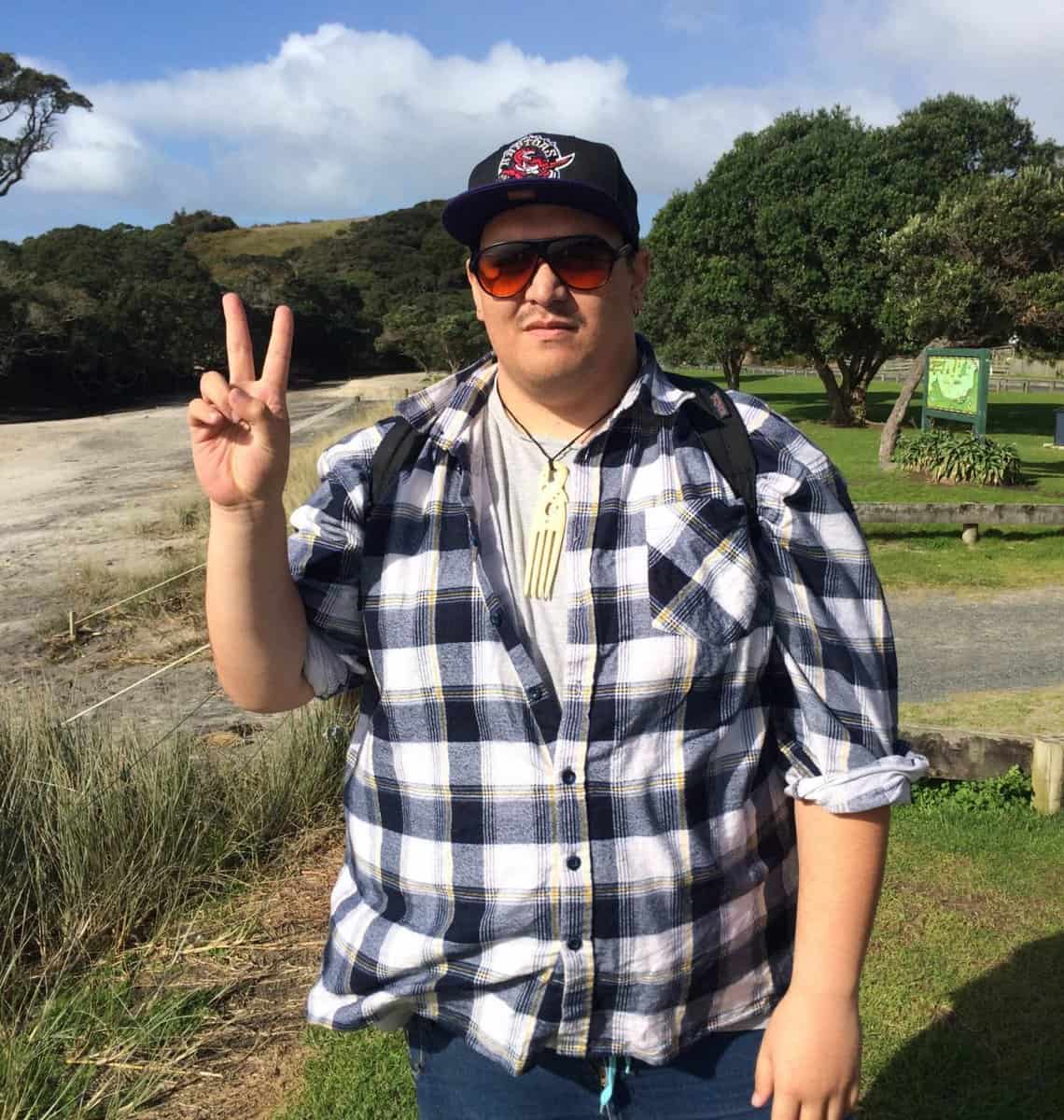After completing his Bachelor of Science in Ecology at the University of Auckland, Hone took on a summer studentship programme at Plant & Food Research. As a part of the studentship, Hone worked on a project looking into how myrtle rust could impact plant species which are important to Māori. This mahi (work) led into a full-time job with Plant & Food Research, working on myrtle rust and taonga species.
Recently, an opportunity arose for Hone to begin working towards his Master’s degree. For this research, Hone will be investigating the potential effects of myrtle rust on aka (vine) species from the Myrtaceae family.
At this stage, myrtle rust is known to be infecting native tree and shrub species from the Myrtle family, specifically pōhutukawa, northern and southern rātā, ramarama and rōhutu. Aotearoa New Zealand is home to many more plant species from the Myrtle family, including vine species such as climbing rātā, which could also be at risk of infection from the myrtle rust pathogen.
Currently, there is little knowledge around how myrtle rust could affect these vine species as there hasn’t been much research into it. Developing an understanding of the impact that myrtle rust could have on vine species will be crucial when it comes to protecting them should the pathogen spread their way.
While it’s still very early days for the research, Hone is hoping to make “a contribution to my community, who have given me so much already.” This project will provide a chance to weave together mātauranga Māori with science.
Hone is continuing to work at Plant & Food Research while completing his Master’s degree. This role allows Hone to provide a Māori perspective to the team there. Hone is motivated to work in this field by “the idea that I’ve taken so much already and want to give something back.”
Hone wishes to pass on his thanks to his supervisors, Nick Waipara and Alby Marsh, as well as to the project’s sponsors from the Beyond Myrtle Rust program, led by Maj Padamsee from Manaaki Whenua.
